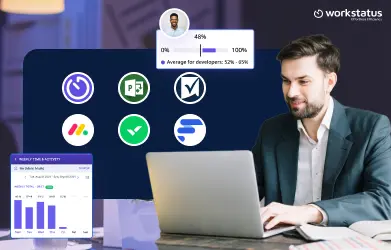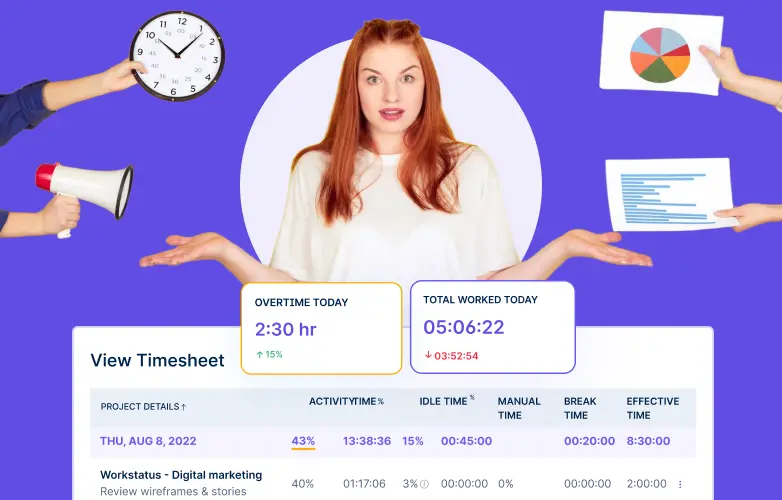Table of Contents
We are here today to discuss something that affects us all: procrastination. We’ve all been there—you know, when you have a big project due tomorrow, but instead of working on it, you find yourself scrolling through Facebook or watching Netflix instead?
Well, let us tell you that it’s not worth it.
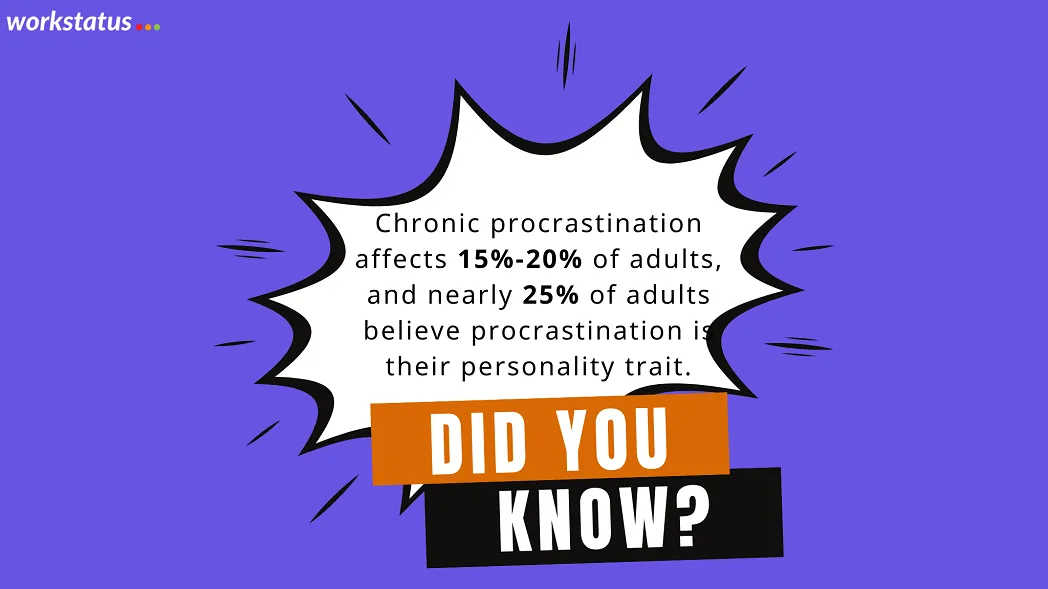
The future of work looks bright if you’re willing to put in the effort. You must learn to manage your time effectively to get everything done without feeling overwhelmed or stressed by deadlines looming over your head.
The first step is admitting that you have a problem with procrastination.
Once you do that, we can work together to find solutions for overcoming this issue so that you can live a more fulfilling life without having all this extra stress weighing down on you constantly.
Read the blog to learn the top strategies to overcome procrastination and become more productive.
How Do You Define Procrastination? Is it the ‘art’ of not doing things?
Procrastination is when you delay doing something because you’re not sure how to do it or because you’re afraid of failure. It’s when you keep telling yourself that you’ll get around to doing something later, but later never comes.
It’s easy to procrastinate because so many other things are vying for your attention: email, social media, Netflix, etc. But in the long run, procrastinating will make life harder because you’ll have less time to finish things! If you want to succeed in life, you need to learn how to overcome your tendency toward procrastination to get everything done on time.
Let’s find out why people procrastinate and the most common reasons for delays, and then explore some strategies to overcome this evil.
Why Do People Procrastinate?
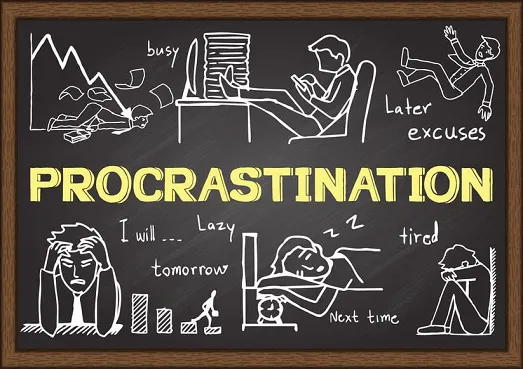
We all procrastinate sometimes, but there are seven key reasons people do it more than others:
- They don’t know how to start.
- Some people might be afraid of failing or making mistakes along the way.
- They don’t feel they have enough motivation or energy to get started.
- They think their work won’t be good enough, so why try?
- They think it’s not essential or doesn’t matter anyway, so why bother?
- They just want an excuse to avoid doing the work altogether because it’s easier than being disciplined and working hard every day for weeks or months.
- Some people think it will take too long or be too hard.
This list might not be all-inclusive, but it might contain the answer you’re looking for. These reasons are valid as long as they aren’t commonly used as excuses.
Avoiding a task because it’s challenging can quickly turn into habits that lead to lower productivity.
You need to address the problems at hand and address them head-on to accomplish what needs to be done.
Some Famous Procrastinators You Don’t Know
-
Bill Clinton
His vice-president has described Bill Clinton ( Ex-President of the United States) and Al Gore as punctually challenged and by Time magazine as chronic procrastinators.
Furthermore, Time Magazine disclosed that he would often engage in “harrowing last-minute cut-and-paste sessions,” which has also been noted by many other officials.
-
J.K. Rowling
J.K. Rowling, a famous English author, is well-known for writing the Harry Potter series. She had often spoken out about her tendency to procrastinate, such as when she said on social media that she was “rather good” at it.
She shared similar sentiments: “You can waste a lot of time on a plan while feeling vaguely productive.” One interview stated that she often spent evenings wandering around the house and procrastinating.
-
Steve Jobs
Steve Jobs was an American businessman who served as the creator and CEO of Apple Inc. Several of his collaborators reported that he would continuously put off work because he never wanted to do something immediately.
-
Margaret Atwood
Margaret Atwood (Canadian writer) has written popular fiction like The Handmaid’s Tale. In addition to her writing career, Margaret shares insights on procrastination with podcast listeners hosted by Adam Grant.
Furthermore, she stated that despite her chronic procrastination, she has always been able to meet her deadlines.
These are some famous personalities who were known for putting things off themselves and would be among those criticizing their procrastination and cautioning others from delaying.
While it is true that you can go ahead and delay your work but still be successful, this does not mean that procrastinating causes people to succeed, does not have any drawbacks, or should be glorified.
Top 6 Strategies To Beat Procrastination

Here are some of the best strategies to overcome procrastination:
1. Set Mini Goals
While that’s good for some projects, it doesn’t work for others. Instead of finishing your project today, think about how to break it down into smaller mini-goals. Think about activities that will bring you closer to reaching your goal.
2. Give Yourself Deadlines
If you want to overcome procrastination, you have to give yourself deadlines. It means setting specific dates.
Ensure these deadlines are realistic and give yourself enough time to complete the job. It will help you be on track and avoid feeling overwhelmed.
3. Break Tasks into Manageable Steps
To overcome procrastination, it is best to break tasks into manageable steps. When a task seems overwhelming, it can be helpful to break it down into smaller goals that you can complete.
For example, if you need to write a paper, your first step might be brainstorming ideas, researching, creating an outline, etc.
By breaking the task into smaller steps, you’ll feel more motivated to get started and less likely to procrastinate.
You can also use productivity tracking software and stop procrastinating by keeping track of your daily tasks.
4. Reward Yourself
A great way to overcome procrastination is to make it more pleasant for yourself.
Giving yourself small rewards when you complete tasks on your to-do list can keep you motivated, and making them visible will remind you of how much progress you’ve made and give your brain something nice to look at.
5. Prioritize Important Tasks
We’ve all heard of the saying that procrastination is the thief of time, and it’s true; if you don’t prioritize correctly, then you won’t have enough time in your day for everything that needs to get done.
Many effective task management strategies exist for higher productivity and to conquer procrastination. But, one of the best strategies is to tackle your most important tasks first.
By focusing on and finishing one item, you’ll know that other projects will have your full attention when they are due.
Rather than jumping from task to task, commit yourself to finish one before taking on another. You’ll feel better about your productivity at work and throughout your day.
Use Apps to Track Your Time
To get rid of your procrastination, one of the best things you can do is track your time. It will help you identify patterns and see where you’re wasting the most time.
There are several great time-tracking apps like Workstatus out there that can help with this.
![]() You can see the percentage of your day spent on work-related tasks versus personal activities.
You can see the percentage of your day spent on work-related tasks versus personal activities.
You’ll also be able to set goals for yourself for the next day or week and even set alerts that remind you when it’s time to start working again.
Procrastination vs. Productivity: Measure Everything With Workstatus
The most prominent challenge people have with getting things done is procrastination. It’s when you keep putting off important tasks because they’re too challenging or not interesting enough.
However, this should not be the case! With the right tools, you can stop procrastinating and get more done in less time.
That’s why we built employee monitoring software like Workstatus with the following powerful features in mind:
1. Reports & Analytics
Workstatus is equipped with a robust reporting and analytics feature that enables users to track their projects’ progress and their team’s productivity.
With this feature, users can generate reports on the following range of metrics:
- Time spent on tasks
- Employee Attendance
- Team performance
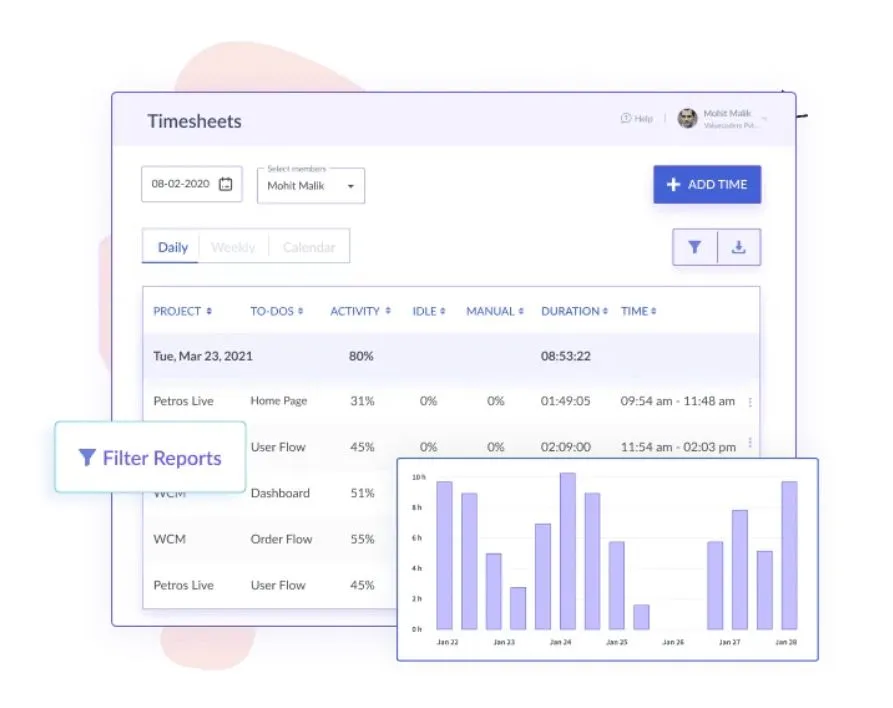
These reports are customizable and can be exported in various formats, giving users complete flexibility and control over their data.
2. Progress Graphs
The progress graph feature in Workstatus provides users with real-time visualization of their project and task progress. This feature allows users to:
- Track progress
- Identify potential bottlenecks
- Make data-driven decisions
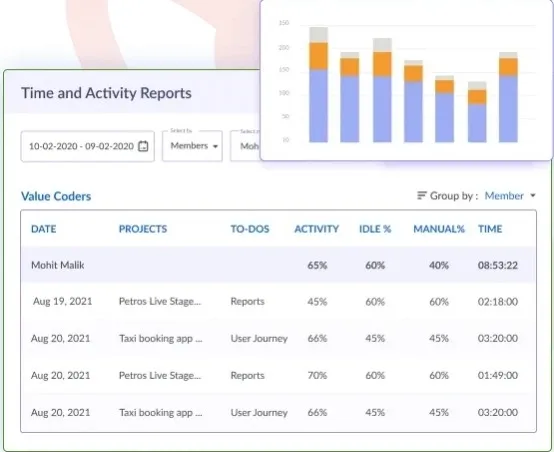
In addition, Workstatus provides detailed analytics on task completion rates, helping users estimate project completion times and optimize their team’s productivity.
3. Idle Timer
The idle timer feature in Workstatus tracks employee activity and detects when an employee is inactive. This feature helps to ensure that employees are:
- Staying engaged & productive
- Meeting deadlines
- Not wasting time on irrelevant apps & sites
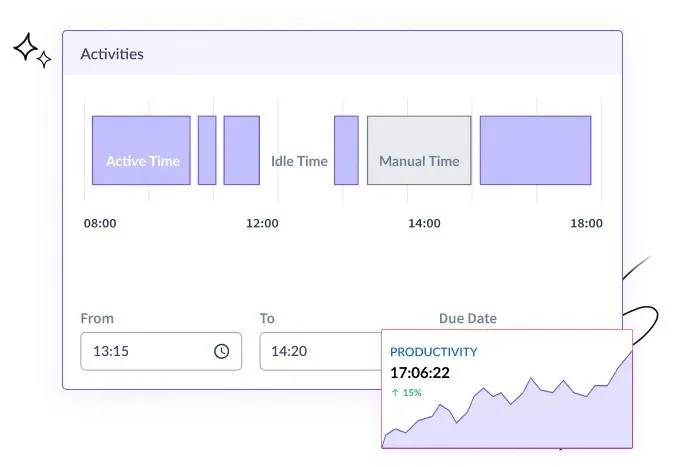
Employers can address any issues or inefficiencies by identifying idle time and improving overall productivity.
4. Productivity Meter
Workstatus includes a productivity meter that allows users to track employee productivity. It provides users with a clear and objective measure of employee performance, enabling them to:
- Recognize top performers
- Identify areas for improvement
- Track productive vs. unproductive time
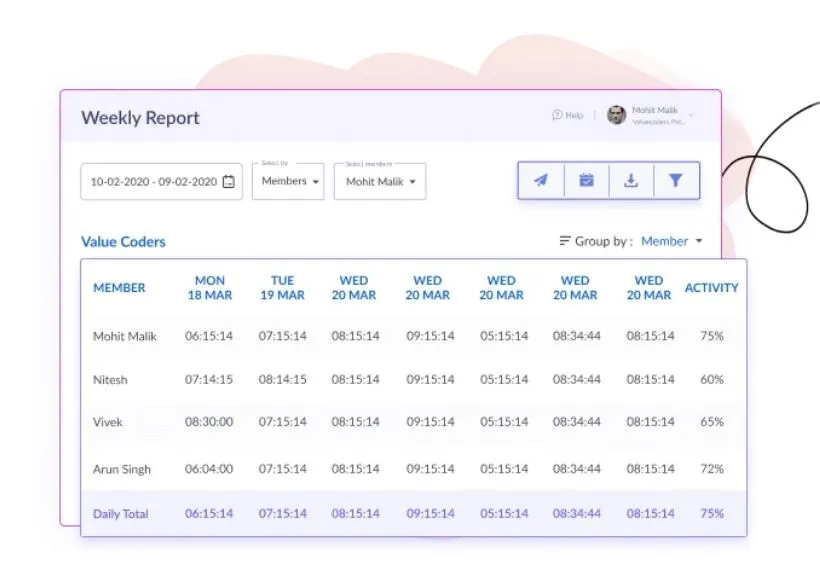
With this feature, users can optimize their team’s performance and ensure they make the most of their time and resources.
Closing Thoughts
In conclusion, the future of work looks more and more like it will be shaped by your ability to balance the need for productivity with the urge for procrastination.
By understanding when it’s appropriate to do one or the other (and when it’s not), you can maximize your performance while minimizing stress levels!
So what does this mean for you? It means that no matter what kind of job you have—whether it’s an office job or something else—you can use the above strategies to help ensure you’re being as productive as possible while still taking some time for yourself along the way!
Don’t delay anymore!
It’s time, to begin with, Workstatus to create a productive workplace for more revenue.
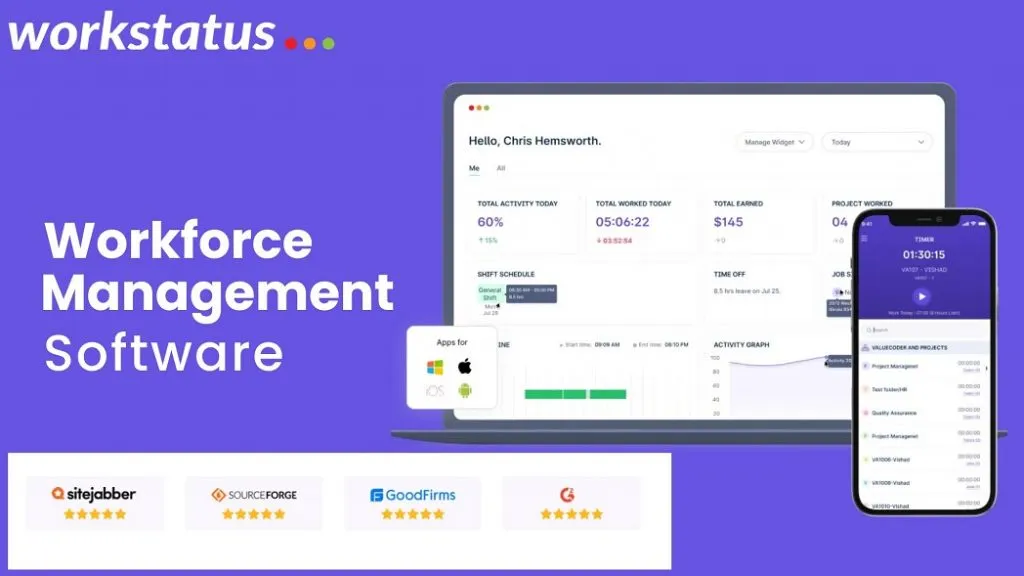
Thanks for reading and not procrastinating!!
FAQs
Ques. Will the future of work be more productive, or will procrastination prevail?
Ans. The future of work is likely to involve both productivity and procrastination.
While technology and automation may increase efficiency and productivity, distractions and the temptation to delay work may still exist.
Ques. How can individuals avoid procrastination in the future of work?
Ans. To avoid procrastination, individuals can set clear goals, establish routines, eliminate distractions, and prioritize tasks.
They can also take breaks and practice self-care to maintain motivation and focus.
What role will technology play in the future of work?
Answer: Technology is likely to play a significant role in the future of work, potentially increasing productivity and efficiency.
However, it may also create new distractions and challenges that individuals must navigate to stay productive.



